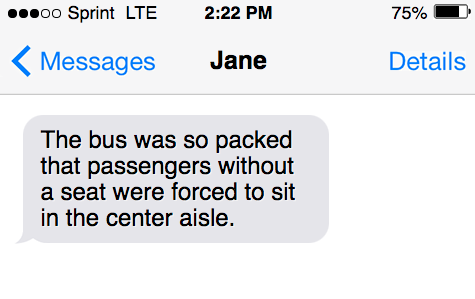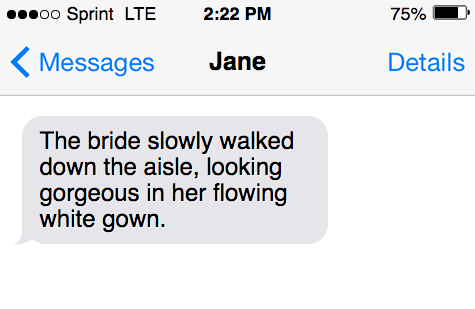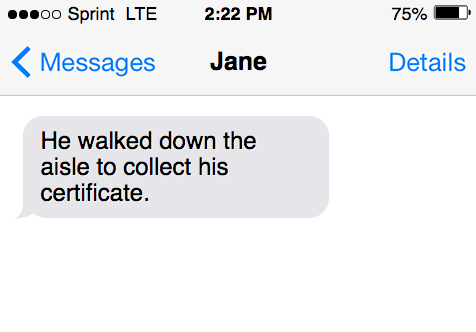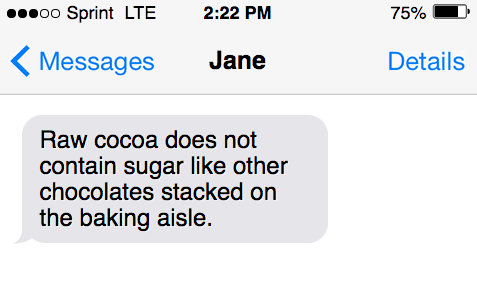What is the difference between aisle vs. isle? These two words sound very similar. Can they get used interchangeably? These two words can be highly confusing for English readers and writers.
Learn the difference between aisle and isle in this worksheet…
Difference between “aisle” and “isle”
Aisle and isle are homophones. Homophones are the exact sounding words that have different meanings and are spelled different. Some examples of homophones are piece and peace, flower and flour, to, too, and two.
The spelling of aisle may mislead people to mispronounce it as ail. The ‘ai’ in aisle is pronounced as a long ‘i’ making it sound just like isle.

Aisle vs isle can create great confusion while writing, as they are spelled similarly. Only aisle starts with ‘a’. The mix-up in the two words can change the meaning of a sentence or even make it incorrect. English writers need to understand how aisle vs isle are different.
To see the differences, it is necessary to look at how their meanings and roots vary.
| Word | Definition |
| Aisle (noun) /īl/ | a passage between rows of seats in a building such as a church or theater, an airplane, or a train. |
| Isle (noun) /īl/ | an island or peninsula, especially a small one. |
What is an “aisle”?
An aisle is essentially a passage or a walkway. It is the space between rows of seats in a room or a building such as a church, classroom, concert hall, or theater. It also applies to the passage on an airplane or train.
A narrow space between shelves in a store is also called an aisle.
Some synonyms of aisle are passageway, pathway, corridor, alley, walkway, and narrow lane.
A few simple sentences with ‘aisle’ will make the idea clear.
- A bride and groom walk down an aisle on their wedding day.
- A shopper walks down the aisle at the supermarket to reach a product.
- An audience walks down the aisle to reach their seats at the concert.
What is an “isle”?
An isle is a small island.
The word isle is often used as a replacement for island. Both the words denote a landmass surrounded by water from all sides.
There is no theory to support why an island is called an isle. It sounds like a short form of an island. So, a smaller word for a little island!
According to some people, isle sounds more romantic and poetic, and that’s how the word came to be used. Isle is archaic, meaning it’s an old-fashioned word for island.

Some well-known isles are Isle of Man, the British Isles, Isle of Capri, Isle of Wight, Isle of Mull, and the Isle of Skye.
The word isle finds its root in the middle English ile, borrowed from old Anglo-French ele, which was derived from Latin insula. The spelling with ‘a’ and ‘s’ is influenced by French and Latin.
Aisle is pronounced ˈī(-ə)l. The ‘i’ sound is long, and the ‘e’ sound is short. The ‘s’ and ‘a’ are silent.
When to use “aisle” in a sentence
When to and how to use the word aisle can be tricky in some sentences. Aisle is used metaphorically in modern English usage. In political reference ‘aisle’ relates to an imaginary space that separates opposing parties.

In the United States, ‘the two sides of the aisle’ and ‘reaching across the aisle’ are common phrases used while referring to the Republicans and the Democrats.
Here are a few sentences showing how aisle is used in its true sense.
Sentence examples
- The bus was so packed that passengers without a seat were forced to sit in the center aisle.
- The bride slowly walked down the aisle, looking gorgeous in her flowing white gown.
- He walked down the aisle to collect his certificate.
- Raw cocoa does not contain sugar like other chocolates stacked on the baking aisle.
- She had to pay extra to get that aisle seat on her flight home.
- The isles in the hall were free during the show for the performers.
- An aisle seat is good because it allows me to stand up and stretch without disturbing anyone.
- If you love aromatic Indian food, walk down the spice aisle and pick some spices that smell good.
- Check out the clearance aisle at the supermarket to save some bucks.
Metaphorical uses of aisle in a sentence
- To find solutions to grave political situations, we can’t look at just one side of the aisle.
- The politician was clever enough to straddle both sides of the aisle, keeping his chances open both ways.
- Most people are not ready to reach out on the other side of the aisle to look for better solutions.
- There is no lack of broadcast statements from either side of the aisle.
When to use “isle” in a sentence
Isle is a noun, and the word is pronounced with the ‘s’ silent. The use of isle is straightforward without any hidden meaning.
Sentence examples
- We will visit the Isle of Man during our vacation.
- People commute by steamers when they want to go to the nearby isle.
- The Isle of Wight had a dynasty of its own.
- He survived despite being stranded on a deserted isle for several years.
- They rented a house on one of the islands to explore the remote isles.
- The isle surrounded by clear blue water is a popular tourist destination.
- The history of the British Isles is fascinating.
- The Isles of Sicily are fringed by sandy beaches.
- Much salt is harvested from the brine pits on the Isle of Man.

How to remember which form to use
Using the wrong word in the wrong place can lead to embarrassing situations. When it seems difficult to decide which one of the aisle vs isle to use in a sentence, remembering some simple things will help you to choose the right one.
The simplest way to remember the usage of aisle vs isle lies in their spelling. The word isle is so similar to island, and both begin with an ‘I.’ Aisle, on the other hand, can be related to an airplane or an alley, both of which begin with ‘A.’
Sources
- Aisle vs. Isle – EnglishGrammar.org
- Aisle vs. Isle: What’s the Difference? – Writing Explained
- Difference between Isle and Aisle | Pair of Words
- Aisle vs. Isle – The Correct Way to Use Each
- Word Choice: Aisle vs. Isle | Proofed’s Writing Tips
- Difference Between Isle and Aisle
Inside this article
Fact checked:
Content is rigorously reviewed by a team of qualified and experienced fact checkers. Fact checkers review articles for factual accuracy, relevance, and timeliness. Learn more.
Core lessons
Glossary
- Abstract Noun
- Accusative Case
- Anecdote
- Antonym
- Active Sentence
- Adverb
- Adjective
- Allegory
- Alliteration
- Adjective Clause
- Adjective Phrase
- Ampersand
- Anastrophe
- Adverbial Clause
- Appositive Phrase
- Clause
- Compound Adjective
- Complex Sentence
- Compound Words
- Compound Predicate
- Common Noun
- Comparative Adjective
- Comparative and Superlative
- Compound Noun
- Compound Subject
- Compound Sentence
- Copular Verb
- Collective Noun
- Colloquialism
- Conciseness
- Consonance
- Conditional
- Concrete Noun
- Conjunction
- Conjugation
- Conditional Sentence
- Comma Splice
- Correlative Conjunction
- Coordinating Conjunction
- Coordinate Adjective
- Cumulative Adjective
- Dative Case
- Determiner
- Declarative Sentence
- Declarative Statement
- Direct Object Pronoun
- Direct Object
- Diction
- Diphthong
- Dangling Modifier
- Demonstrative Pronoun
- Demonstrative Adjective
- Direct Characterization
- Definite Article
- Doublespeak
- False Dilemma Fallacy
- Future Perfect Progressive
- Future Simple
- Future Perfect Continuous
- Future Perfect
- First Conditional
- Irregular Adjective
- Irregular Verb
- Imperative Sentence
- Indefinite Article
- Intransitive Verb
- Introductory Phrase
- Indefinite Pronoun
- Indirect Characterization
- Interrogative Sentence
- Intensive Pronoun
- Inanimate Object
- Indefinite Tense
- Infinitive Phrase
- Interjection
- Intensifier
- Infinitive
- Indicative Mood
- Participle
- Parallelism
- Prepositional Phrase
- Past Simple Tense
- Past Continuous Tense
- Past Perfect Tense
- Past Progressive Tense
- Present Simple Tense
- Present Perfect Tense
- Personal Pronoun
- Personification
- Persuasive Writing
- Parallel Structure
- Phrasal Verb
- Predicate Adjective
- Predicate Nominative
- Phonetic Language
- Plural Noun
- Punctuation
- Punctuation Marks
- Preposition
- Preposition of Place
- Parts of Speech
- Possessive Adjective
- Possessive Determiner
- Possessive Case
- Possessive Noun
- Proper Adjective
- Proper Noun
- Present Participle
- Prefix
- Predicate



